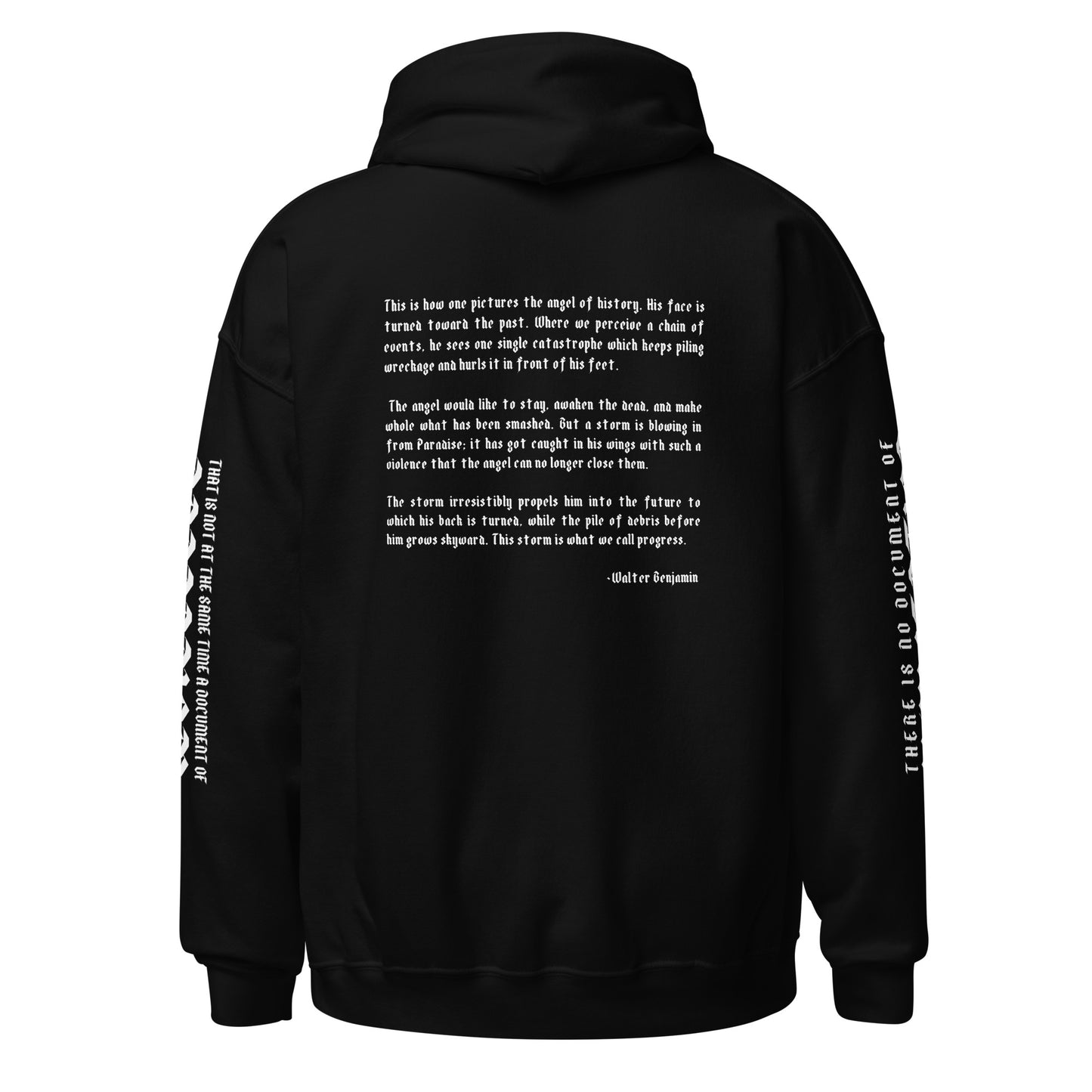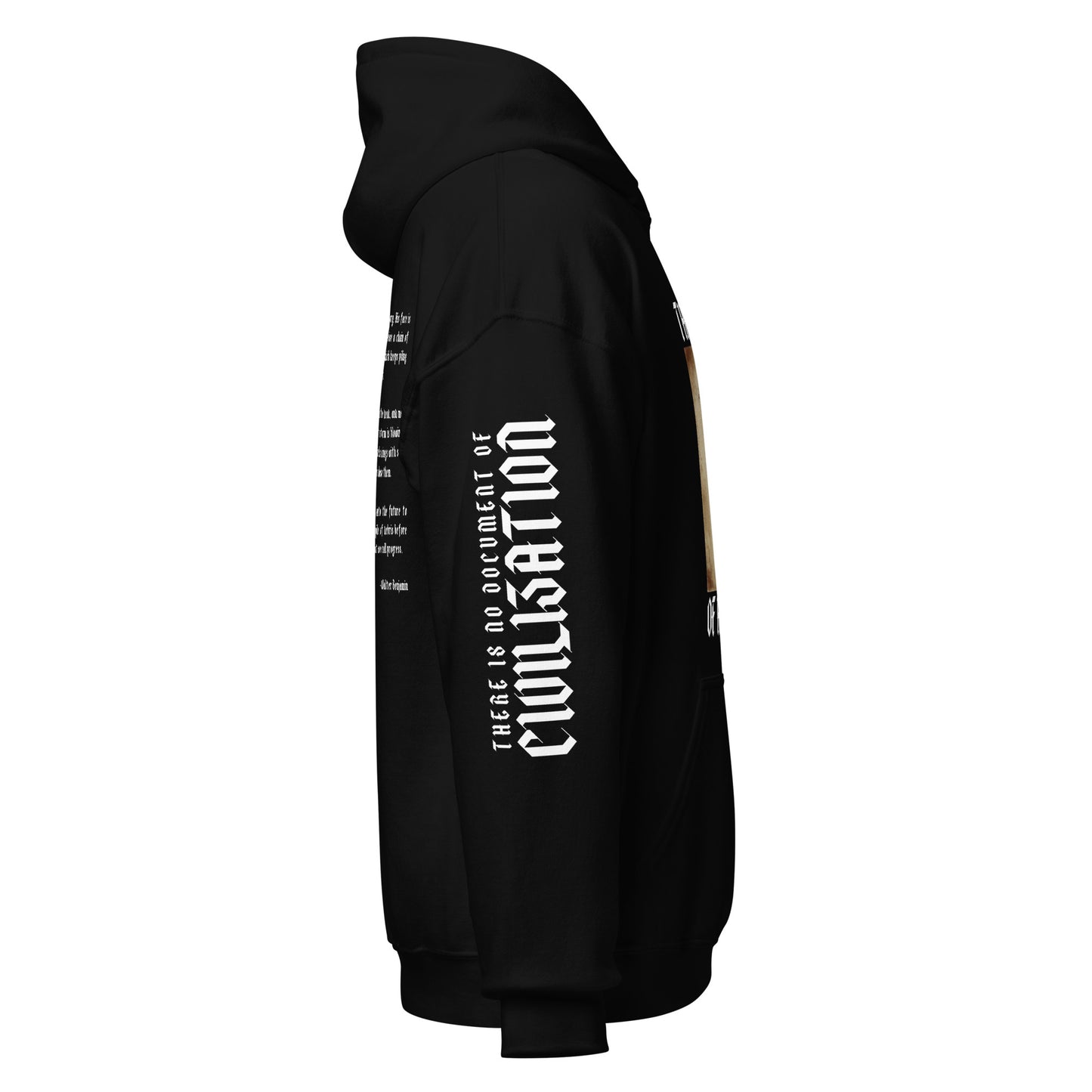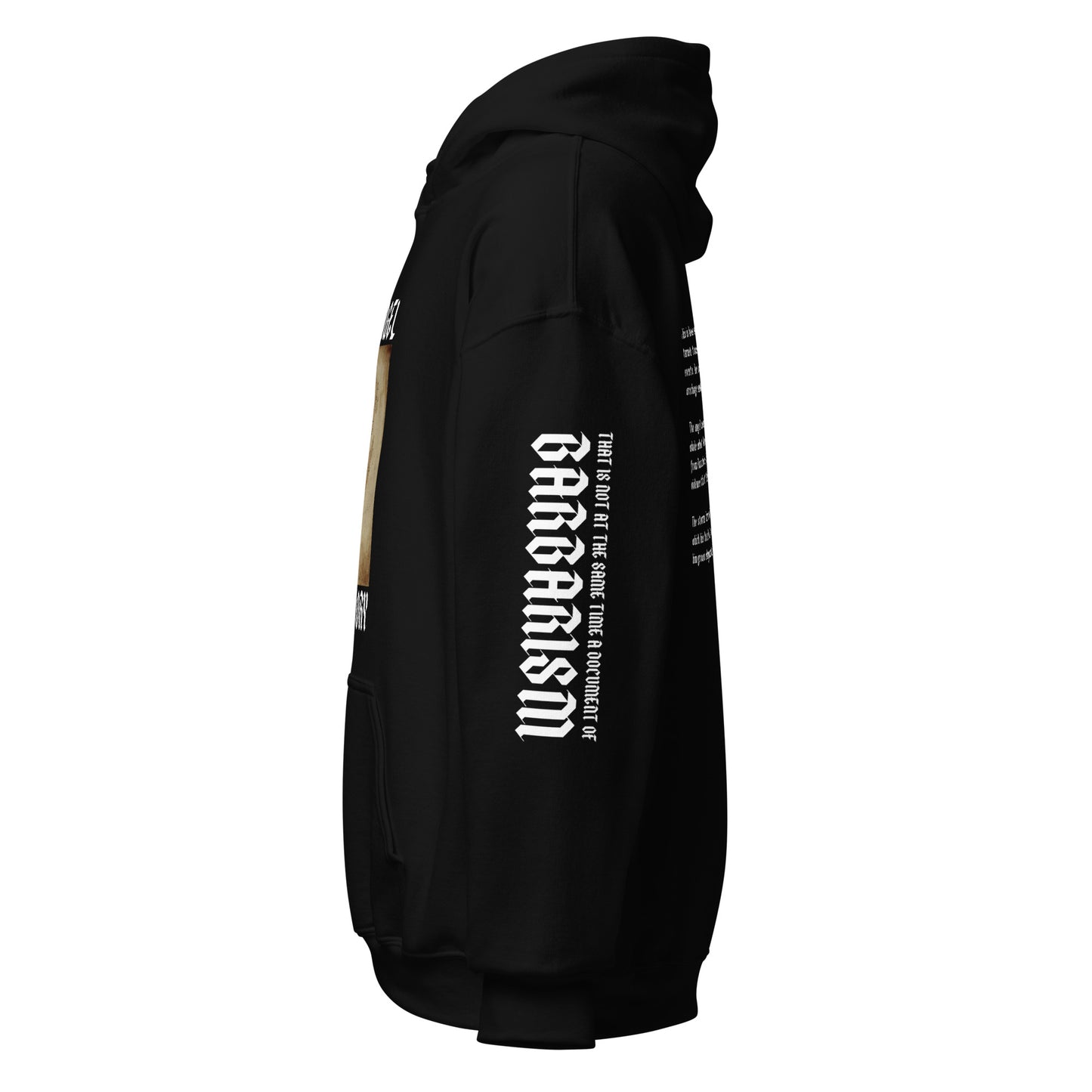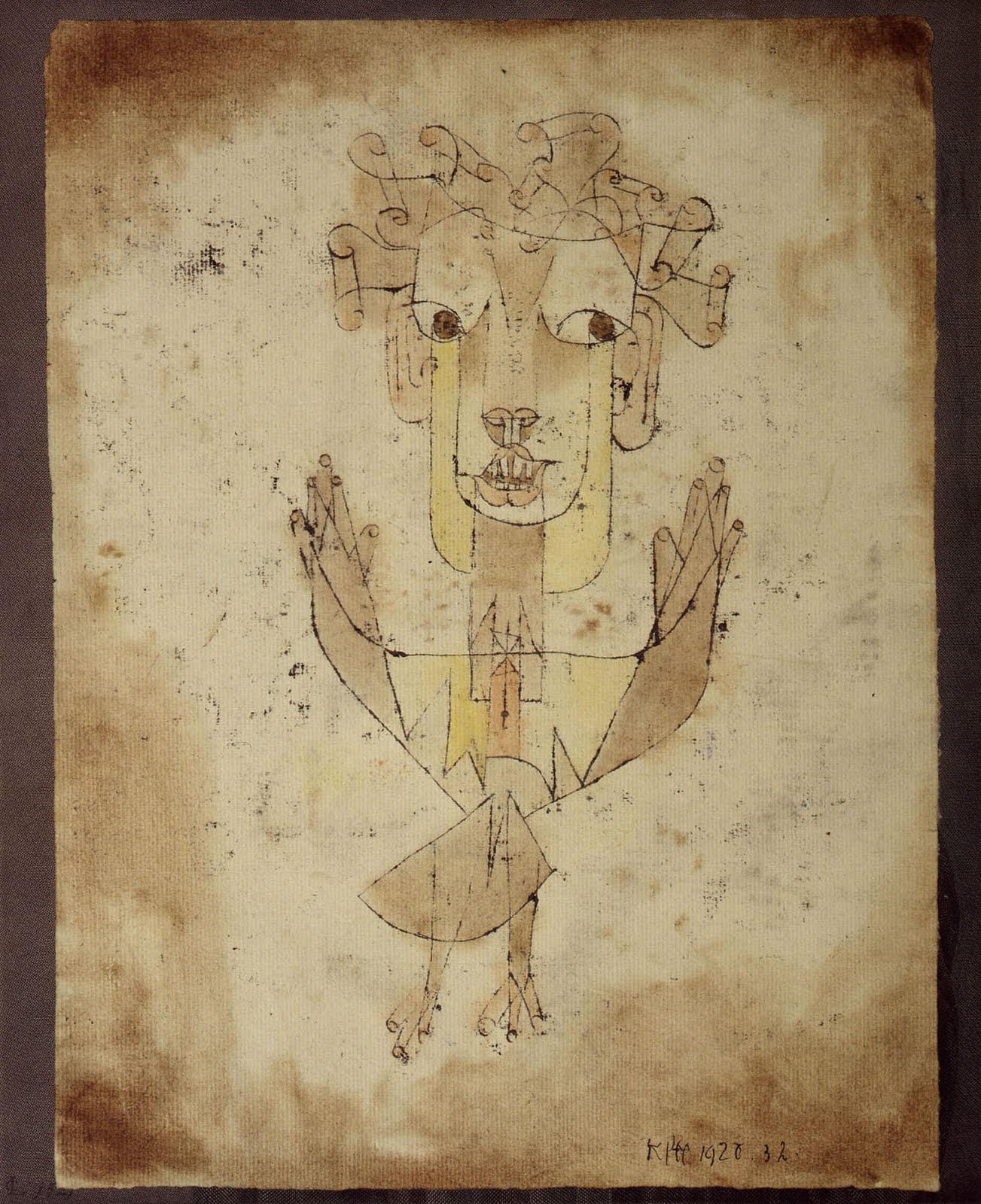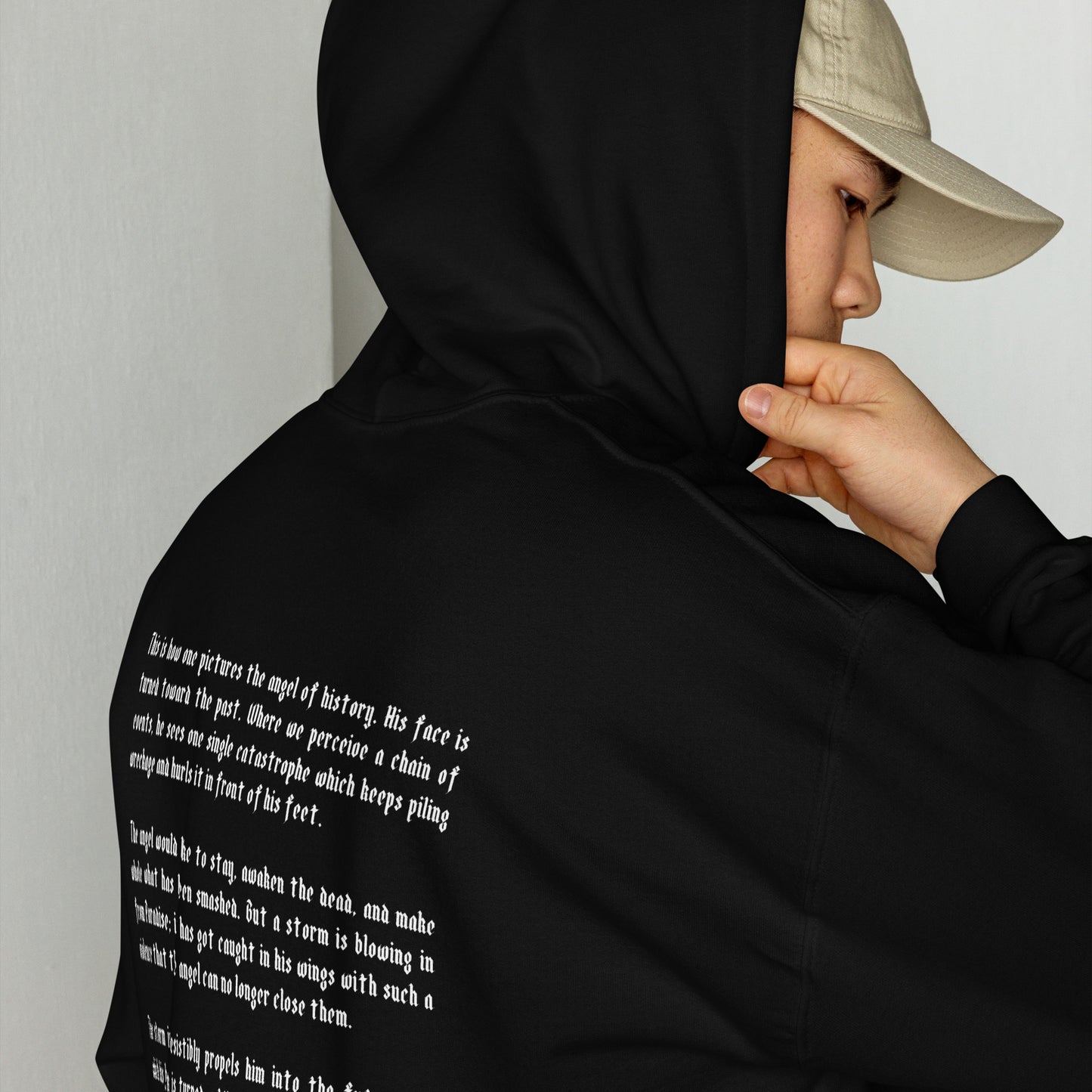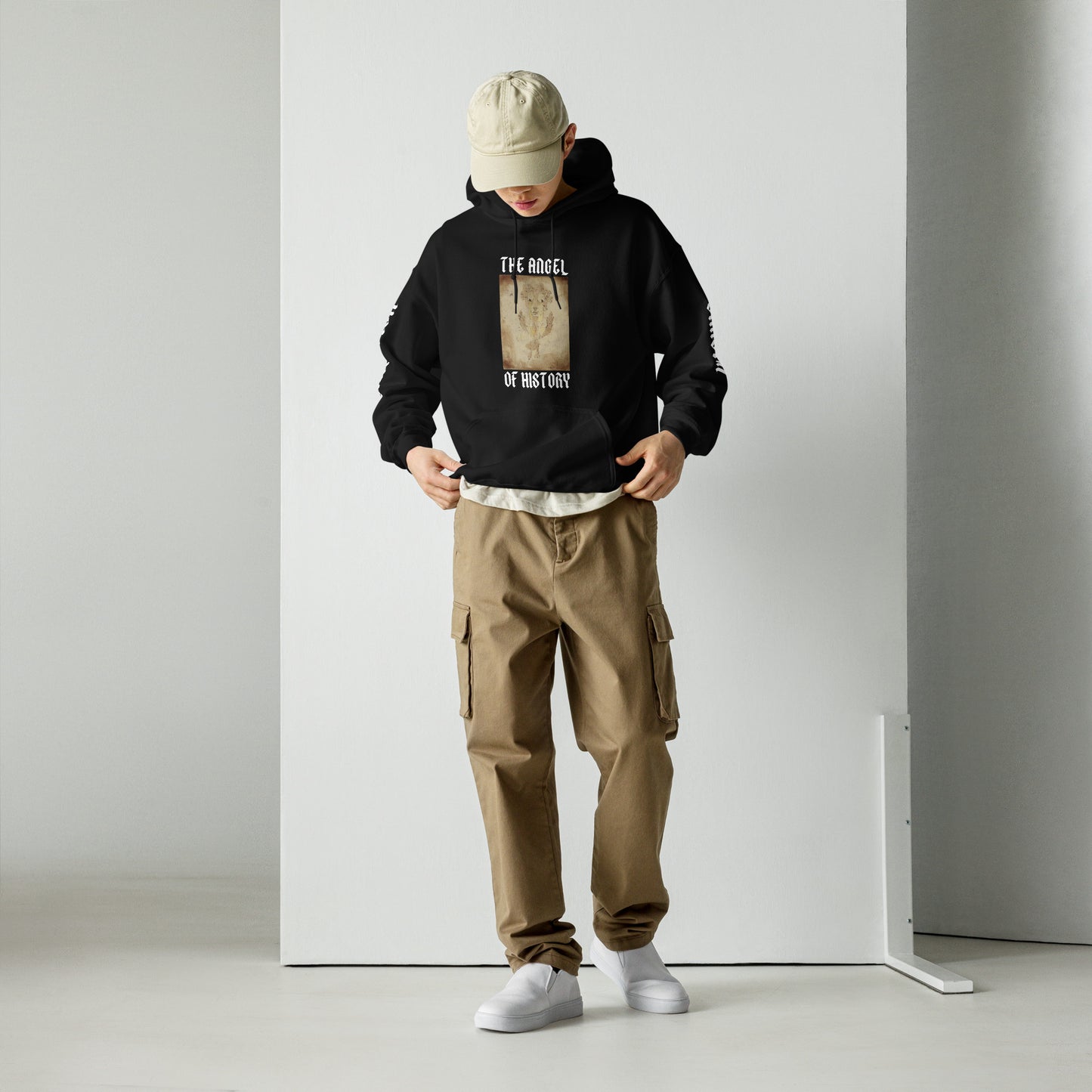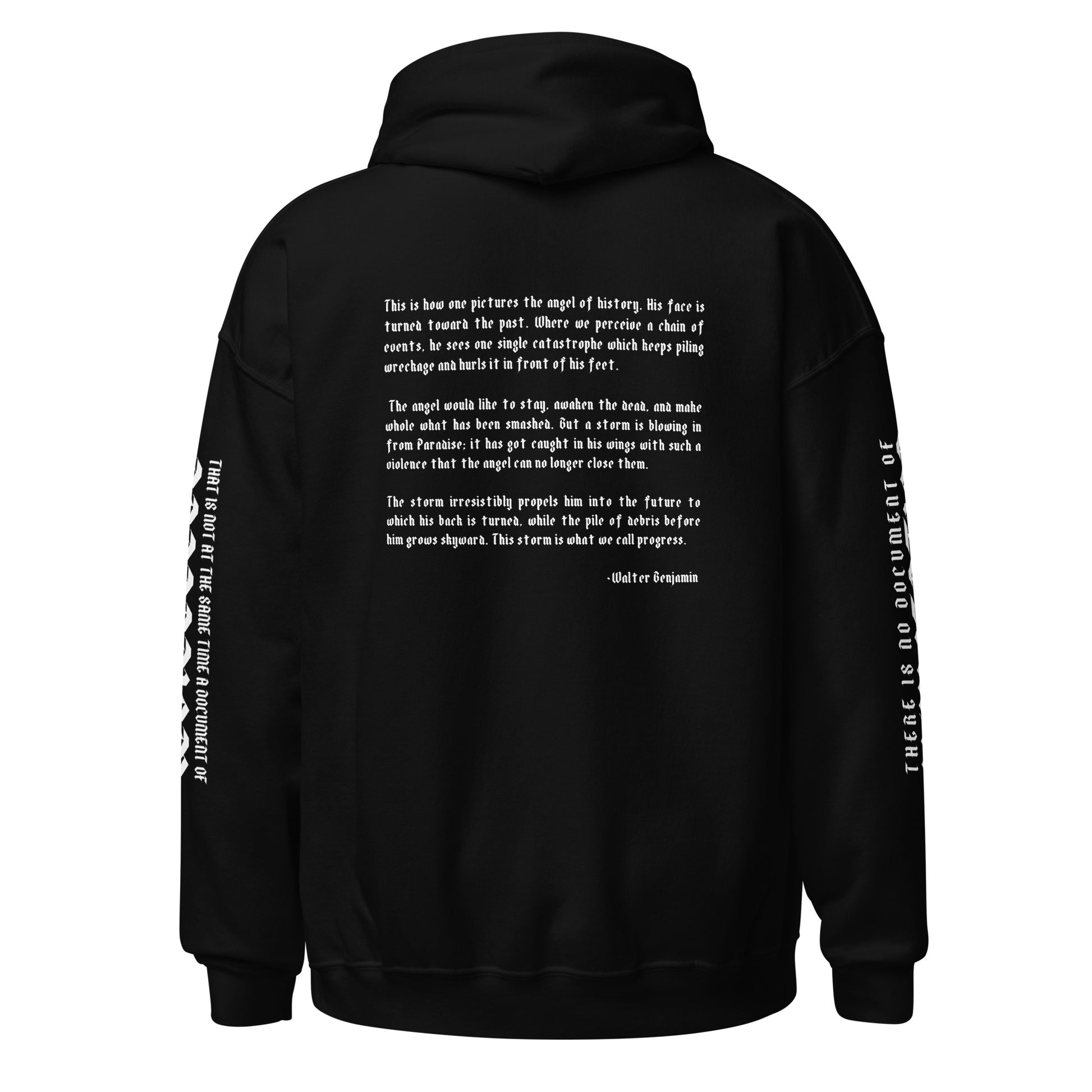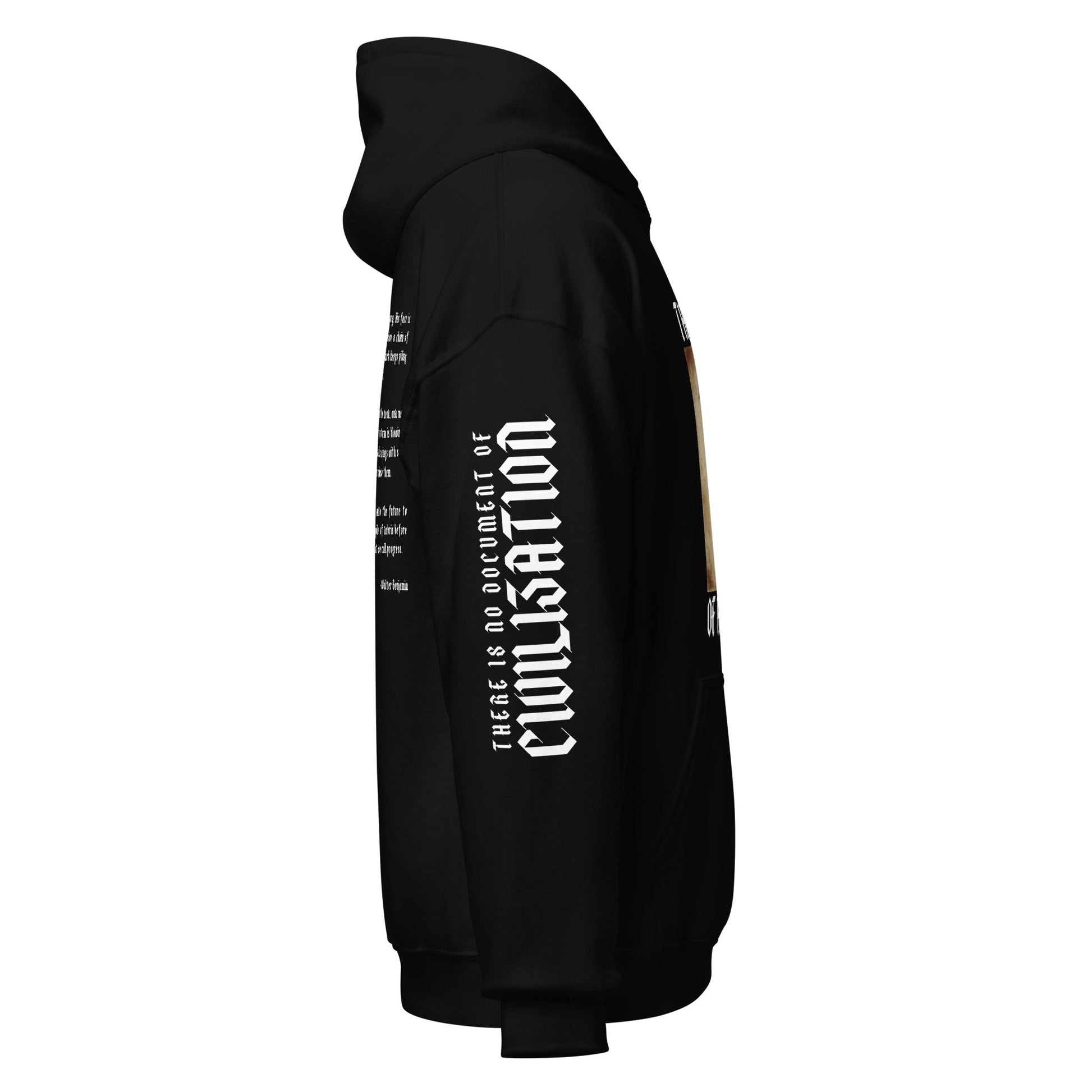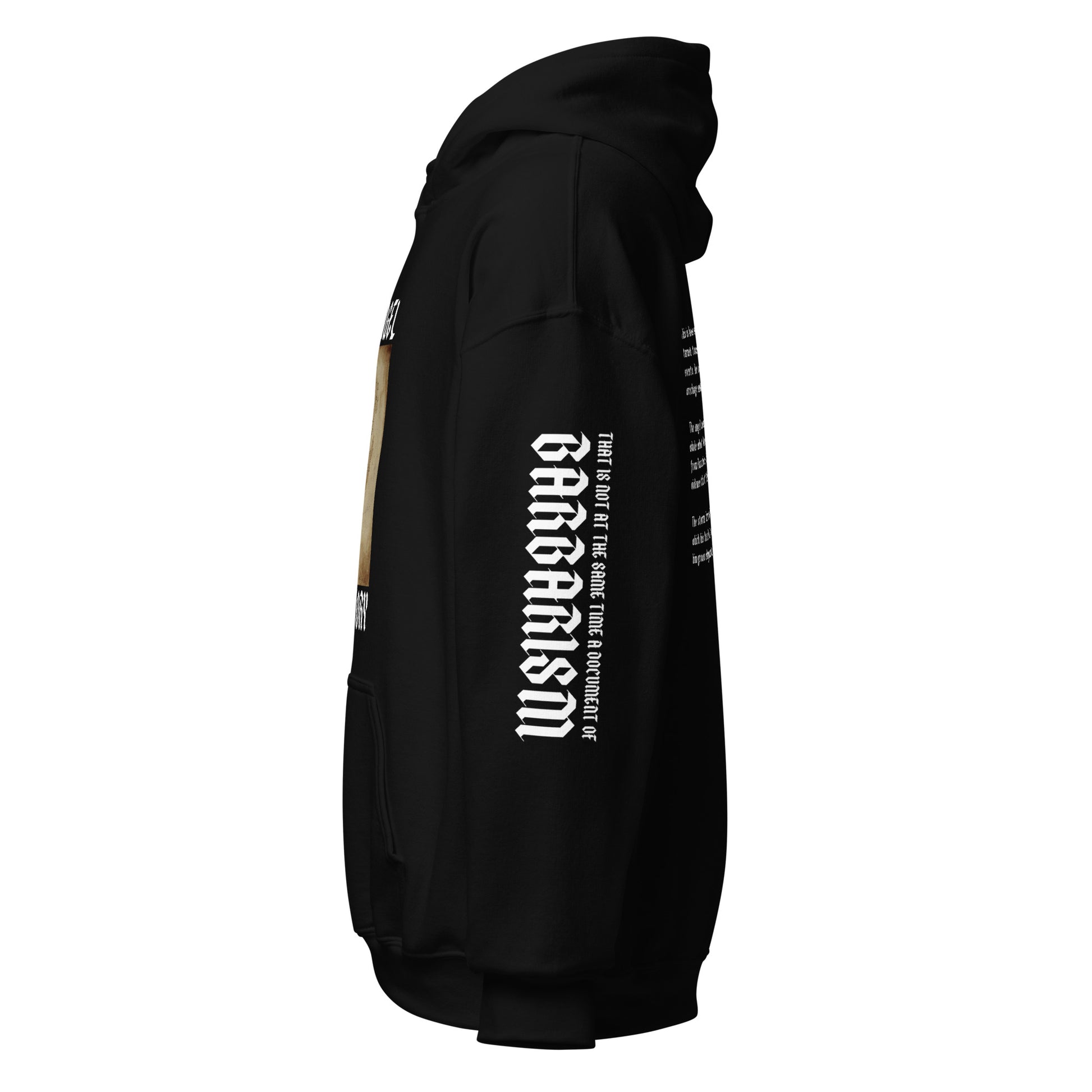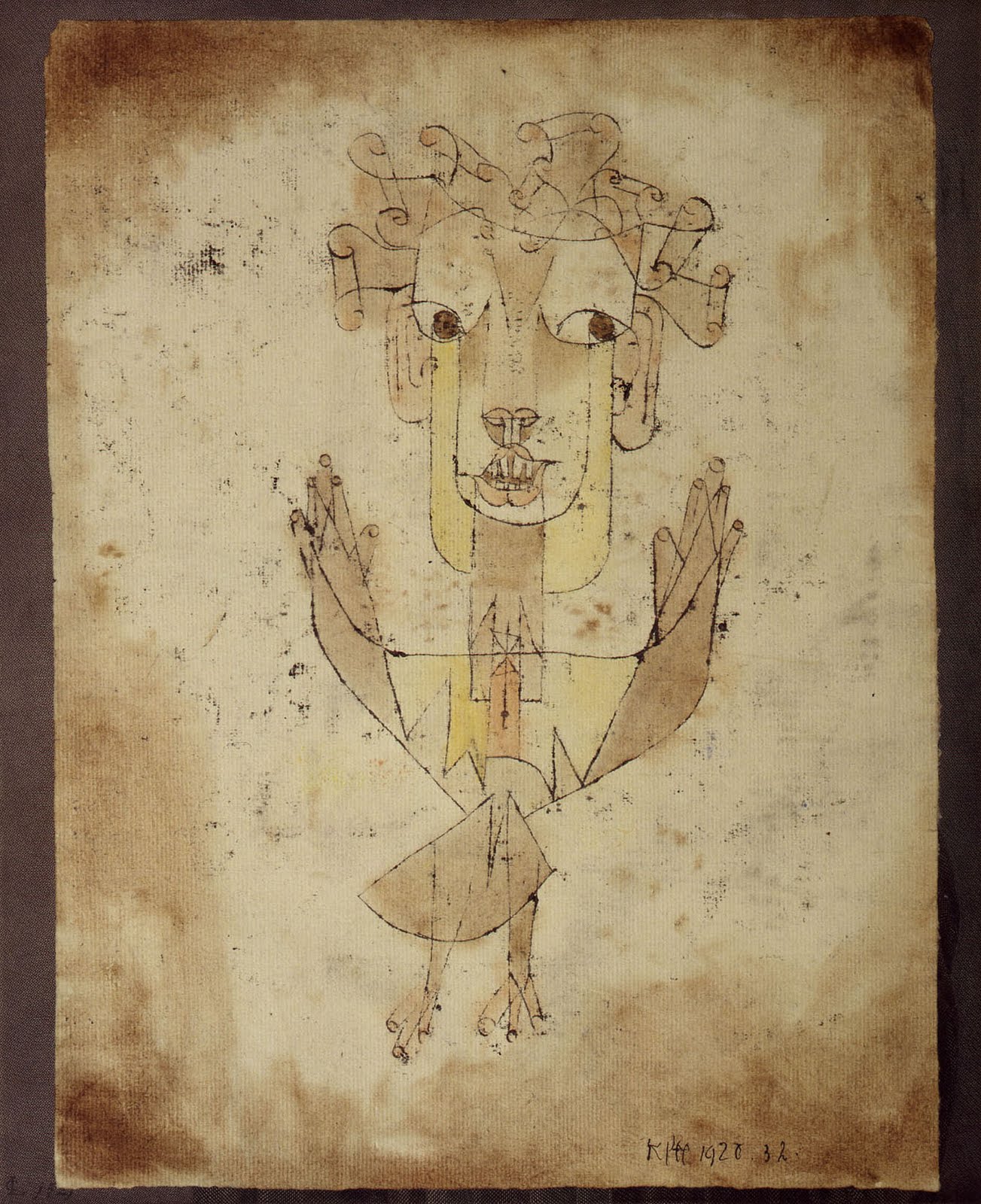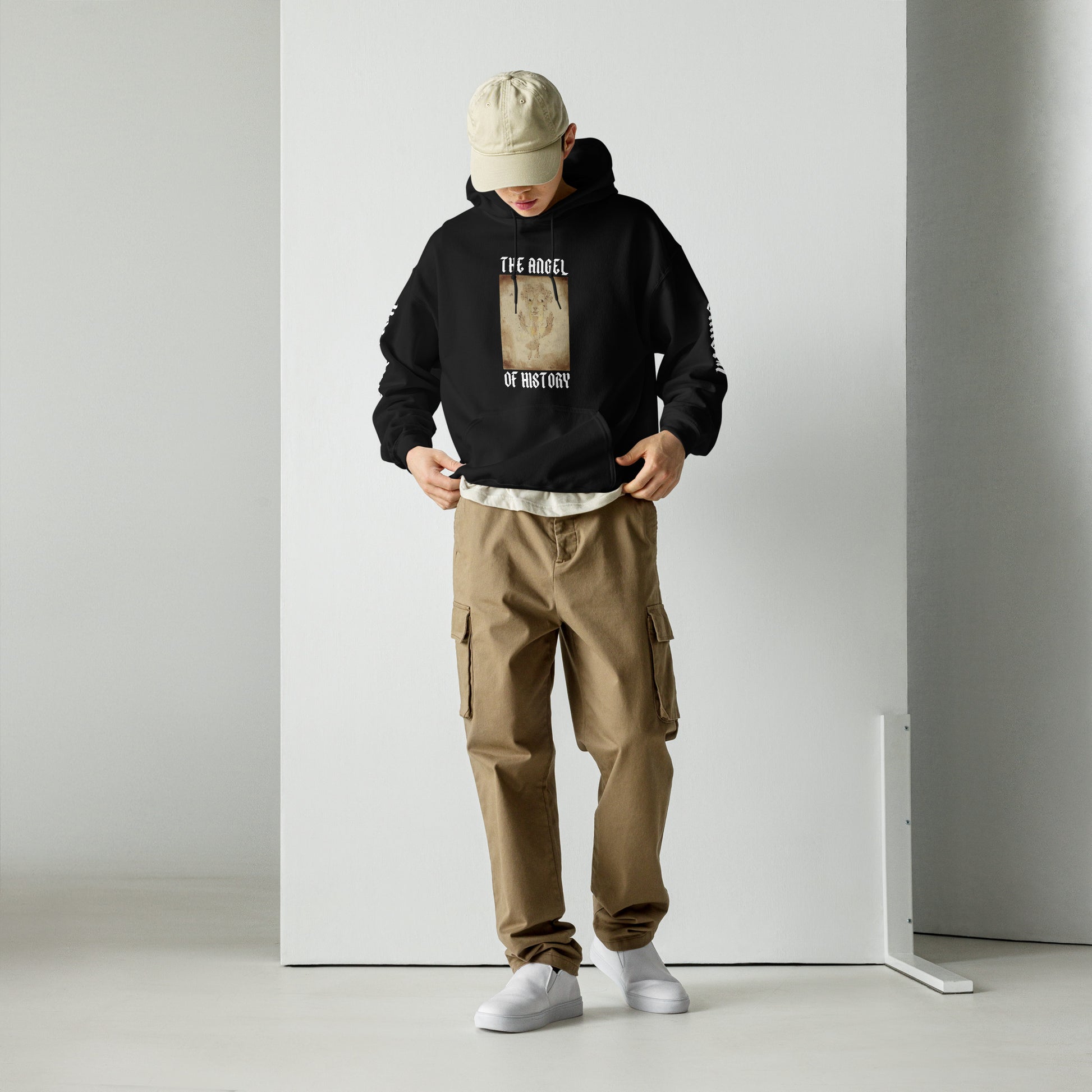Minor Canon
Walter Benjamin Angel of History hoodie
Couldn't load pickup availability
Walter Benjamin (1892–1940) was a German Jewish philosopher, cultural critic and essayist. A leading member of the Frankfurt School of social theory, his eclectic thought combined elements of German idealism, Romanticism, Western Marxism, and Jewish mysticism. His enduring and influential contributions to aesthetic theory, literary criticism, and historical materialism have led him to be considered one of the foundational figures of 20th-century critical theory.
"Theses on the Philosophy of History" (1940) is one of Benjamin's best-known and most provocative works. Representing an attack on scientific historicism in favour of a metaphysical, even theological species of Marxism, the essay is full of cryptic, striking phrases and vivid imagery. Benjamin wrote the brief text, composed of twenty numbered paragraphs, shortly before he attempted to escape from Vichy France, where French collaborationist government officials were handing over Jewish refugees to the Nazi Gestapo. "Theses" is the last major work Benjamin completed before fleeing to Spain where, fearing Nazi capture, he committed suicide on September 26, 1940. Coloured by his immersion in Jewish mysticism, it crystallizes Benjamin's ideas about "messianic time."
In the essay, Benjamin outlines an oblique and poetic yet powerful critique of the modern idea of "progress" and sketches a tragic view of history. Art, in this perspective, is characterized as the "spoils" of a "triumphal procession in which the present rulers step over those who are lying prostrate...a historical materialist views them with cautious detachment. For without exception the cultural treasures he surveys have an origin which he cannot contemplate without horror...There is no document of civilization which is not at the same time a document of barbarism."
The essay also includes a fragment that is one of the most celebrated works of art criticism of the 20th century, as notorious for its freedom of interpretation as it is revered for its visionary language. With reference to Paul Klee's 1920 painting Angelus Novus, Benjamin imagines a figure he calls the "Angel of History."
Section IX reads:
A Klee painting named Angelus Novus shows an angel looking as though he is about to move away from something he is fixedly contemplating. His eyes are staring, his mouth is open, his wings are spread. This is how one pictures the angel of history. His face is turned toward the past. Where we perceive a chain of events, he sees one single catastrophe which keeps piling wreckage and hurls it in front of his feet. The angel would like to stay, awaken the dead, and make whole what has been smashed. But a storm is blowing in from Paradise; it has got caught in his wings with such a violence that the angel can no longer close them. The storm irresistibly propels him into the future to which his back is turned, while the pile of debris before him grows skyward. This storm is what we call progress.
This paragraph is reproduced on the back of this hoodie. The right sleeve reads "there is no document of civilization," and the left reads, "which is not at the same time a document of barbarism." The lettering is in a contemporary version of the blackletter type which was common in Western Europe until the 17th century and is particularly associated with Germany, where the use of blackletter continued well after most European countries had stopped using it in favour of more modern typefaces. Under the Nazis, blackletter type was discontinued by an "edict on script" (Schrifterlass) in 1941, as Hitler deemed it "Jewish-influenced."
• 50% pre-shrunk cotton, 50% polyester
• Fabric weight: 8.0 oz/yd² (271.25 g/m²)
• Air-jet spun yarn with a soft feel and reduced pilling
• Double-lined hood with matching drawcord
• Quarter-turned body to avoid crease down the middle
• 1 × 1 athletic rib-knit cuffs and waistband with spandex
• Front pouch pocket
• Double-needle stitched collar, shoulders, armholes, cuffs, and hem
• Blank product sourced from Honduras, Mexico, or Nicaragua
This product is made especially for you as soon as you place an order, which is why it takes us a bit longer to deliver it to you. Making products on demand instead of in bulk helps reduce overproduction.

